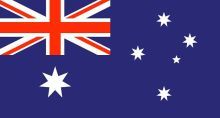 Everything you need to know about today’s coverage of Israel and the Mideast. Join the Israel Daily News Stream on Facebook.
Everything you need to know about today’s coverage of Israel and the Mideast. Join the Israel Daily News Stream on Facebook.
Today’s Top Stories
1. Salam Fayyad to AP: The Palestinian Authority state of Palestine is in peril because Arab donors aren’t following through on promised assistance.
Fayyad said he managed to pay half the November salaries by getting another bank loan, using as collateral Arab League promises of future support. He said he can’t pay the rest of the November salaries, let alone start thinking about December wages.
The Palestinian Authority already owes local banks more than $1.3 billion and can’t get more loans. It also owes hundreds of millions of dollars to private businesses, including suppliers to hospitals, some of whom have stopped doing business with the government.
2. Worth reading: Visiting an army outpost in the Golan, the Washington Post‘s Joel Greenberg touches on the Syrian issues Israel watches. Chemical weapons falling into the wrong hands is just one worry:
On the Golan front, Israeli officials are concerned that conditions there could follow a pattern that developed along Israel’s border with Egypt after the toppling of President Hosni Mubarak. A breakdown of security in Egypt’s Sinai Peninsula, where jihadist groups have gained a foothold, has led to cross-border shooting and rocket attacks on Israel, including an infiltration by gunmen that left eight Israelis dead in August 2011.
See also the Daily Telegraph for more on Israeli plans to build a 45-mile barrier along the Syrian border.
3. For commentary on Al Jazeera taking over Current TV, see the NY Times, and Washington Post, (both pro-sale), and the Wall Street Journal (against). I liked what Al Jazeera-English’s former Washington bureau chief, Dave Marash, had to say to CNN’s Howard Kurtz.
Israel and the Palestinians
• Hamas denied media reports that the Mossad has a source in Ismail Haniyeh’s office.
• Bad news for the BDS movement: Israeli company wins $650 million contracts to plan, supply and operate what will be the largest water desalination plant in the US. Details at Globes.
• Worth reading: Washington Post columnist Jackson Diehl deconstructs the idea that the second-term Obama administration should make Israeli-Palestinian peace a front-burner issue.
But what’s needed is a concerted but low-key policy, one that aims at creating conditions for a long-term solution but does not pretend that it can be delivered in the next year or two. Obama should encourage Israel’s new government to take palliative steps to ease movement and promote development in the West Bank; he should press Egypt’s ruling Islamists to exert a moderating influence over Hamas. Above all, he should accept the lesson of his first term: that making Middle East peace a presidential priority will not make it happen.
 • A former Australian cabinet minister has choice words for the politicians who forced Australia to abstain on the Palestinian statehood bid. Barry Cohen writes in The Australian:
• A former Australian cabinet minister has choice words for the politicians who forced Australia to abstain on the Palestinian statehood bid. Barry Cohen writes in The Australian:
Those who believe Israel doesn’t want peace are living in a fantasy world. Israel will negotiate with the Arab world, and Palestine in particular, when they show they are genuine. They don’t want another “war” but permanent peace.
Unfortunately, only a handful of caucus members have any real knowledge of this centuries-old conflict. They could not see that abstaining will only encourage the Palestinians to be more intransigent. The democracies should be telling the Palestinians they will become a state when they recognise Israel’s right to exist.

